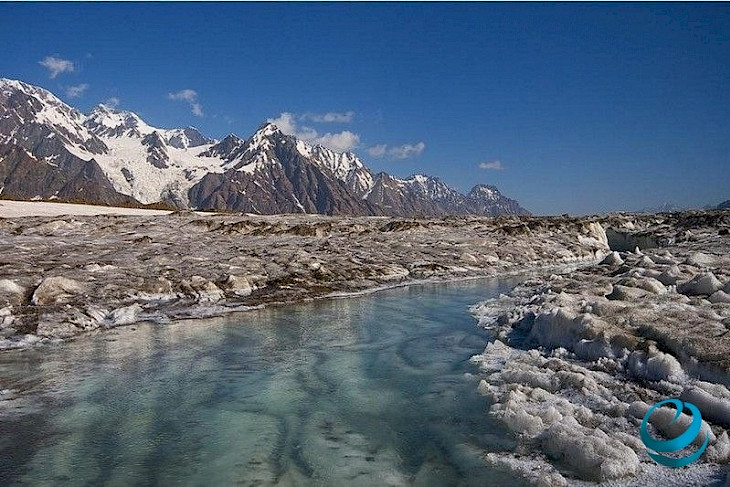The peak of river runoff in Central Asia will shift due to the accelerated melting of glaciers, stated Dmitry Petrakov, associate professor of cryolithology and glaciology at the Faculty of Geography of Moscow State University, in the program "In the Center of Asia," Eurasia Today reports.
Glaciers are shrinking quite rapidly in Kazakhstan, Kyrgyzstan, Uzbekistan, and the northern part of Tajikistan, claims Petrakov. However, he asserts that glaciers in the eastern and central Pamirs are melting more slowly.
"This is due to the fact that the axis of subtropical anticyclones, as a rule, has shifted slightly northward in recent years. If, for example, 50 years ago in the Tien Shan mountains, there was often overcast weather, frequent rains, snowfalls in summer, now there is a lot of sunny, clear weather. This leads to faster glacier melting," explained the expert.
Petrakov notes that the consequences for agriculture and the economy of the region are transparent.
"Firstly, glaciers begin to melt a little earlier. And the peak of river runoff will shift from July-August to an earlier time. It will shift towards June. Therefore, we need to prepare for the second part of the agricultural season, which will have less water. And we need to prepare for this now, including developing hydropower," Petrakov emphasized.
International organizations have previously published forecasts that the region will face a colossal water shortage by 2030. Nevertheless, Central Asian countries are planning to implement projects for the construction of hydropower plants (HPPs) and reservoirs.
Kyrgyzstan has initiated the construction of three reservoirs in the Issyk-Kul and Naryn regions, with plans to build nine more new facilities. The authorities are also focused on implementing the Kambar-Ata HPP-1 project.
Uzbekistan and Tajikistan intend to jointly build two HPPs on the Zeravshan River. The budget and project estimates are currently under discussion. Recently, two new hydroposts were opened on the border between these two countries.
CentralasianLIGHT.org
March 12, 2024

